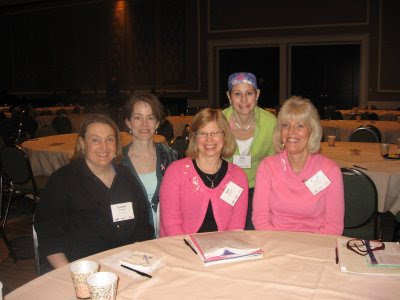Herceptin
I think I'm happy with the outcome of the brouhaha over Herceptin in Ontario. For those of you outside the province or outside the loop. Jill Anzarut, a 35 year old woman undergoing treatment for breast cancer made the news last week when she announced that the province had to pay for Herceptin because her Her2+ tumour was less than one centimetre (that's about 1/4 inch) in diameter.
The province initially refused to budge but eventually caved after a massive campaign played out in the social and traditional media. Access to Herceptin will now much more room for discretion when it comes to providing access to the drug.
I feel good about this. It's not that I think that every drug should be funded for every person. Her2+ cancers are very aggressive and, as best put by Stephen Chia, chair of the British Columbia breast-tumour group, “In HER-2 positive cancers, it’s not the size that drives it; it’s the HER-2 gene that drives it.”
Election
Canadians are once again going to the polls. I am not happy about this.
I'm worried that we will end up with a Conservative majority.
I have election fatigue. There was a time in my life when an election would make me feel excited and hopeful. Now I just think, "Ugh."
Presents in the mail
Did you see my scrabble pendant in yesterday's post? My friend Leslie sent it to me after I told her I'd like to have on with my initial on it. It made me very happy to open the envelope that held my surprise.
The bad with the good
Last week, I received my author's copy of the current issue of Canadian Woman Studies. The theme this quarter is Women and Cancer and I have a poem that is part of a piece called "Seven Reflections on Breast Cancer by Seven Women Who Worked Together." I'm happy about that.
I'm far less happy about another piece I stumbled on when I was leafing through the issue. It's called "The Private/Public Split in Breast Cancer Memoirs." It was written by a woman who came to my book launch in Toronto and asked for permission to speak in order to seek contributions - something to which I readily agreed. She also asked me to contribute to the issue, which prompted me to reach out to my writing group.
I had no idea that she planned to write a scathing deconstruction of my book - but that's what she did. I know that all writers get bad reviews but I found her comments to be very critical of me as a person (I guess you can't seperate the analysis of a memoir from its author) and quite unfair.
I'm sure how to respond or react, or whether I should do so at all. I've actually been unable to finish reading the article. With a distinct lack of maturity, I threw the journal onto the living room floor and it stayed there for several days. I only just picked it up, in order to write this post.
I'll let you know what I decide to do. Meanwhile, I'm pasting my very own contribution below. It's a very small part of a greater whole (and not the strongest piece by the seven of us by any stretch) but it's mine and, like all my writing, expresses a little bit of what has been in my heart.
Snap shots
December 2nd, 2005.
When I close my eyes, I see myself as I was then.
Short dark hair and boots with heels.
Irritable and excited in equal measure.
I knew big change was coming. And it did. But it was not what I expected.
I was getting undressed when I found the lump.
July 1st, 2006
I close my eyes and see myself as I was then.
Round, bald and bloated. But happy.
Chemo is behind me. Or so I expect.
I am self-conscious but also hungry.
I eat two burgers at the barbecue.
December 24th, 2006
I close my eyes and see myself as I was.
I rallied for Christmas Eve but in the end the pain got the best of me.
My liver was riddled with tumours. And I had waited too long for the morphine.
My mother had to put me to bed. That comforted me.
And so did the drugs.
June 25th, 2007
I close my eyes and I can taste
The strawberries on my tongue
The sensual pleasure of the whipped cream
And the Niagara ice wine as it slid down my throat.
I knew I would soon have something to celebrate.
December 16th, 2009
I close my eyes so I can think.
I have now been in remission for 30 months.
And I will be in treatment for the rest of my life.
Some days I wake up celebrating.
Some days I grieve for what I have lost.
Today is a sad day.
Tomorrow will be better. Or maybe the day after that.




